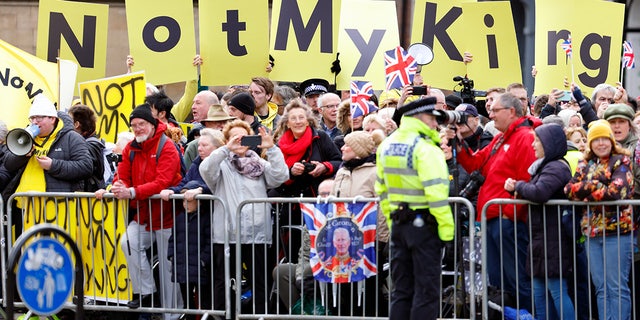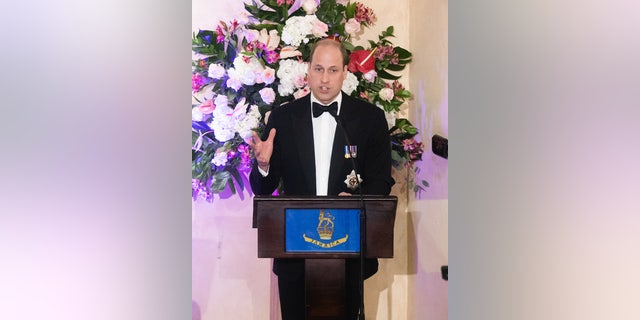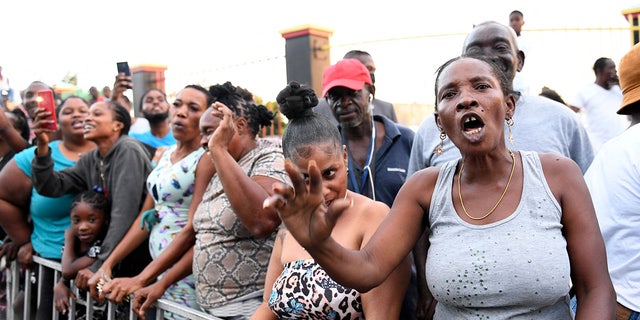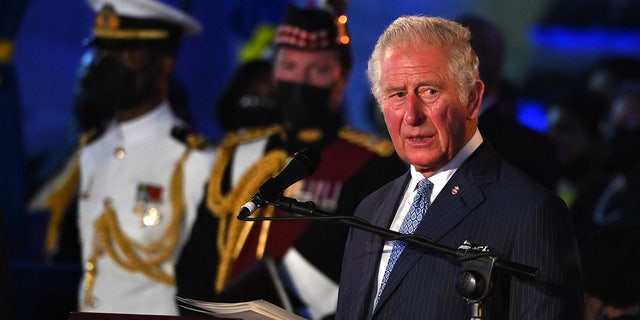For the first time, King Charles is opening up the archives for an investigation into the British royal family’s links to the transatlantic slave trade.
The monarch, who will be crowned on May 6, takes the issue “proudly seriously” and academics will be given access, a Buckingham Palace spokesperson announced Thursday.
The statement was in response to an article, which was published by The Guardian newspaper, that revealed a document that showed a deputy governor of the slave-trading Royal African Company transferred 1,000 pounds of shares in the business to King William III, Charles’ ancestor, in 1689.
King Charles III attends the Royal Maundy Service at York Minster on April 6, 2023, in York, England. (Max Mumby / Indigo / Getty Images)
The newspaper reported on the document as part of a series of stories on the royal family’s wealth and finances, as well as the monarchy’s connection to slavery.
“This is an issue that his majesty takes profoundly seriously,” a palace spokesperson told the outlet in a statement. “As his majesty told the Commonwealth heads of government reception in Rwanda last year: ‘I cannot describe the depths of my personal sorrow at the suffering of so many, as I continue to deepen my own understanding of slavery’s enduring impact.’”
“That process has continued with vigor and determination since his majesty’s accession,” the spokesperson continued. “Historic Royal Palaces is a partner in an independent research project, which began in October last year, that is exploring, among other issues, the links between the British monarchy and the transatlantic slave trade during the late 17th and 18th centuries.”

Anti-monarchy protesters gather ahead of the arrival of King Charles III and his wife, Camilla, at the Royal Maundy Service at York Minster on April 6, 2023, in York, England. (Max Mumby / Indigo / Getty Images)
“As part of that drive, the royal household is supporting this research through access to the royal collection and the royal archives,” the spokesperson added.
The statement is believed to be the first time Buckingham Palace has publicly voiced support, as well as cooperation, into an investigation of the royal family’s history with colonialism.
The 74-year-old ascended to the throne in September last year after the death of his mother, Queen Elizabeth II.

Prince William expressed his sorrow over slavery during a dinner hosted by the governor-general of Jamaica at King’s House, March 23, 2022, in Kingston, Jamaica. (Samir Hussein / Pool / WireImage)
Both Charles and his eldest son, Prince William, have expressed their sorrow over slavery but haven’t acknowledged the crown’s connection to the trade.
The king has said he’s trying to deepen his understanding of “slavery’s enduring impact” that runs deep in the commonwealth, which is an international grouping of countries made up mostly of former British colonies.
During a ceremony that marked Barbados becoming a republic two years ago, then-Prince Charles referred to “the darkest days of our past and the appalling atrocity of slavery, which forever stains our history.” English settlers used African slaves to turn the island into a wealthy sugar colony.
CLICK HERE TO SIGN UP FOR THE ENTERTAINMENT NEWSLETTER

Prince William and Princess Kate were met by protesters during their visit to the Caribbean last year. Demonstrators demanded that the monarchy apologize for its role in the slave trade. (Ricardo Makyn / AFP via Getty Images)
William denounced slavery during his tour of the Caribbean with his wife, Princess Kate Middleton, last year. Their royal tour was met with protests.
“I want to express my profound sorrow,” said the 40-year-old at a diplomatic dinner hosted by the governor-general of Jamaica. The father of three acknowledged his country’s role in the trafficking of people to the Caribbean and the United States.
“Slavery was abhorrent,” said William at the time. “And it should never have happened.”

Then-Prince Charles traveled to Barbados in 2021 ahead of the country’s transition to a republic within the commonwealth. (Jeff J. Mitchell / Pool / Getty Images)
KING CHARLES, CAMILLA, QUEEN CONSORT, BEGIN NEW REIGN WITH WORLD DEBUT IN GERMANY
Dr. Brooke Newman of Virginia Commonwealth University told The Guardian that while the king’s support of the research is promising, it “does not go anywhere near far enough.”
“This is an interesting development, and the expression of support may sound progressive, but a full investigation into the monarchy’s extensive, centuries-long involvement in the transatlantic slave trade and slavery, and the wealth successive monarchs accumulated from it, would need a team of researchers and forensic accountants, fully resourced,” she added.
The research into the monarchy’s ties to slavery, co-sponsored by Historic Royal Palaces and Manchester University, is expected to be completed by 2026.
The Associated Press contributed to this report.